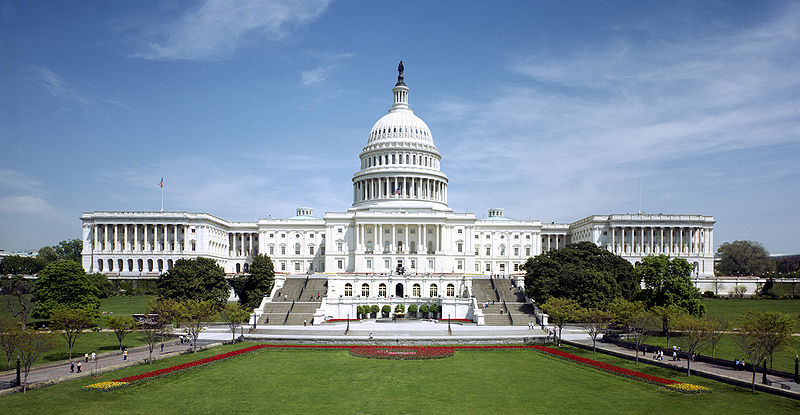Oversight Board’s ’20 Fiscal Plan proposes 1-yr. pause on gov’t rightsizing

The Financial Oversight and Management Board for Puerto Rico today presented the 2020 Fiscal Plan for the Commonwealth of Puerto Rico for certification, which calls for, among other actions, a one-year delay in most government rightsizing activity to allow it to focus on structural reforms and efficiency measures.
The document will be up for the Oversight Board’s certification during its public meeting via videoconference today.
“The measures outlined in the previous Fiscal Plans were successful in driving some meaningful progress in rightsizing our government and enabled us to immediately utilize resources set aside in the emergency reserve fund after the earthquakes and to mitigate and contain COVID-19,” said Oversight Board Chairman José Carrión.
“Unlike other local governments in the United States, Puerto Rico was not forced to respond to lost revenues with urgent and drastic cuts to its expenditures and essential services,” he said.
“Nevertheless, the people of Puerto Rico have been waiting for a real transformation. The government must take this latest crisis as a call to action: the government not only needs to achieve budget savings but change the way it does business,” Carrión said. “That’s what this Fiscal Plan is all about.”
The 2020 Fiscal Plan provides a one-year delay in most categories of government rightsizing to allow the public apparatus to redouble its efforts on implementation of structural reforms and efficiency measures. This pause in rightsizing includes maintaining the subsidies to the University of Puerto Rico and to the municipalities at current fiscal year levels, the Oversight Board said.
The 2020 roadmap sets immediate priorities for the government for fiscal year 2021, stresses the importance of ongoing structural reforms, and provides significant investments to improve government, the economy, and the quality of life in Puerto Rico.
“The one-year delay in new right-sizing measures is not an invitation to inaction,” said the Oversight Board’s Executive Director Natalie Jaresko. “We cannot stand still and allow this crisis to define us. The 2020 Fiscal Plan is a plan for change. Spending money without a vision means that money is too often wasted; a vision without a plan is too often merely a mirage.”
Economic analysis
The Oversight Board projects that the Puerto Rico economy will contract by 4.0% in this current fiscal year of 2020, with a mild 0.5% recovery in the coming fiscal year of 2021, supported by federal funds related to COVID-19, and the hurricanes and earthquakes.
However, even with the full and timely implementation of all structural reforms outlined in the 2020 Fiscal Plan, the forecast projects that the economy of Puerto Rico will contract during the next five-years period despite benign economic growth in some years.
“This is yet another reason to act with urgency to implement the structural reforms outlined in the 2020 Fiscal Plan,” Board officials said.
The 2020 Fiscal Plan projects a central government deficit from fiscal year 2032 onward, six years sooner than the previous certified Fiscal Plan projected, and a total primary surplus of about $8 billion between fiscal years 2020 and 2032, compared to an about $23 billion surplus in the previous certified Fiscal Plan, a 65% decline for the same period.
’20 Fiscal Plan Priorities
Without the need to achieve incremental budget savings, the government should focus all its efforts in fiscal year 2021 on real changes across the public sector that assure better delivery of essential services:
- For the Education Department to implement a back-to-school plan, a time and attendance reporting policy for all employees, record daily student attendance, efficiently manage its student-teacher ratio by observing its own staffing policies, and generate savings through improved procurement and more transparent accounting.
- For the Health Department to focus on core health care services by saving money through centralized procurement of supplies across agencies and public hospitals, develop an action plan for telehealth, consolidate regional Medicaid offices, improve hospital management, and integrate the Health Insurance Services Administration (ASES, in Spanish).
- For the Department of Public Safety to move more officers from administrative positions to the field so they can better serve residents, and reduce overtime with better time management, fully consolidate the back office.
- For the Department of Corrections and Rehabilitation to generate savings through improved procurement, analyze the utilization of facilities given the decline in the prison population, and generate savings through improved procurement.
- For the Department of Economic Development and Commerce to finalize the consolidation of the Puerto Rico Tourism Company and ascribe the Planning Board into the department, renegotiate procurement contracts, and publish quarterly reports of economic incentives.
Fiscal Plan investments
The document provides substantial investments totaling around $6 billion in fiscal years 2020 through 2025:
- In health care, including capital expenditures for public hospitals; towards hiring public school nurses and establishing a scholarship fund to encourage graduating doctors to serve in the rural areas; towards opioid treatment and Hepatitis; and towards increased reimbursement rates for services provided by primary care and outpatient specialty providers as well as hospitals.
- In public education, including investments to improve English language teaching, to incentivize schools to achieve better educational outcomes by publishing school-specific performance scorecards for student and teacher attendance and graduation rates, and to pay outstanding amounts of previous salary increases to transitory teachers.
- In public safety, including the third year of back pay for police, the second half of their 30% salary increase, funding for recruitment and training of cadets, EMS and Forensics staff hiring, and equipment for firefighters.
- In technology to improve access to broadband in rural areas, and business and technology training to provide greater opportunity to the workforce.
- To conduct an Oversight Board-commissioned study for the private sector and the government to define a comprehensive and actionable plan to reactivate the manufacturing sector in Puerto Rico.
- To expedite hurricane reconstruction efforts by providing $750 million in working capital to facilitate Federal Emergency Management Agency-approved reconstruction efforts.
Structural Reforms
The proposed reforms include providing access to reliable broadband across Puerto Rico; providing comprehensive development opportunities for adults in the workforce; dramatically improving K-12 education; improving the competitiveness and attractiveness of Puerto Rico’s economy by reducing the obstacles to starting and sustaining a business through improvements to the processes to obtain permits, register property, and pay taxes; and providing lower cost and more reliable energy through the transformation of the Puerto Rico Electric Power Authority .
“Nevertheless, even if all the reforms outlined in the Fiscal Plan are implemented, Puerto Rico will not be done. The Fiscal Plan lays out the minimum required reforms. Soon, the government will have to take additional measures beyond the five-year framework of this 2020 Fiscal Plan to balance budgets,” Board officials said.
“Many of these reforms would increase revenues and therefore make funds available for a variety of potential uses, most importantly to invest in the people of Puerto Rico,” the U.S.-appointed regulatory body stated.
“Puerto Rico can overcome this current public health and economic crisis. It will be a difficult road ahead over the coming months and years, but the people of Puerto Rico have proven their resiliency. It’s with that in mind that the 2020 Fiscal Plan lays out a blueprint for actions that the government must take to responsibly prepare for the future, notwithstanding uncertainties and difficulties,” the Oversight Board said.













